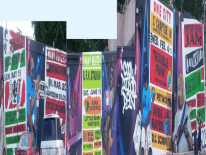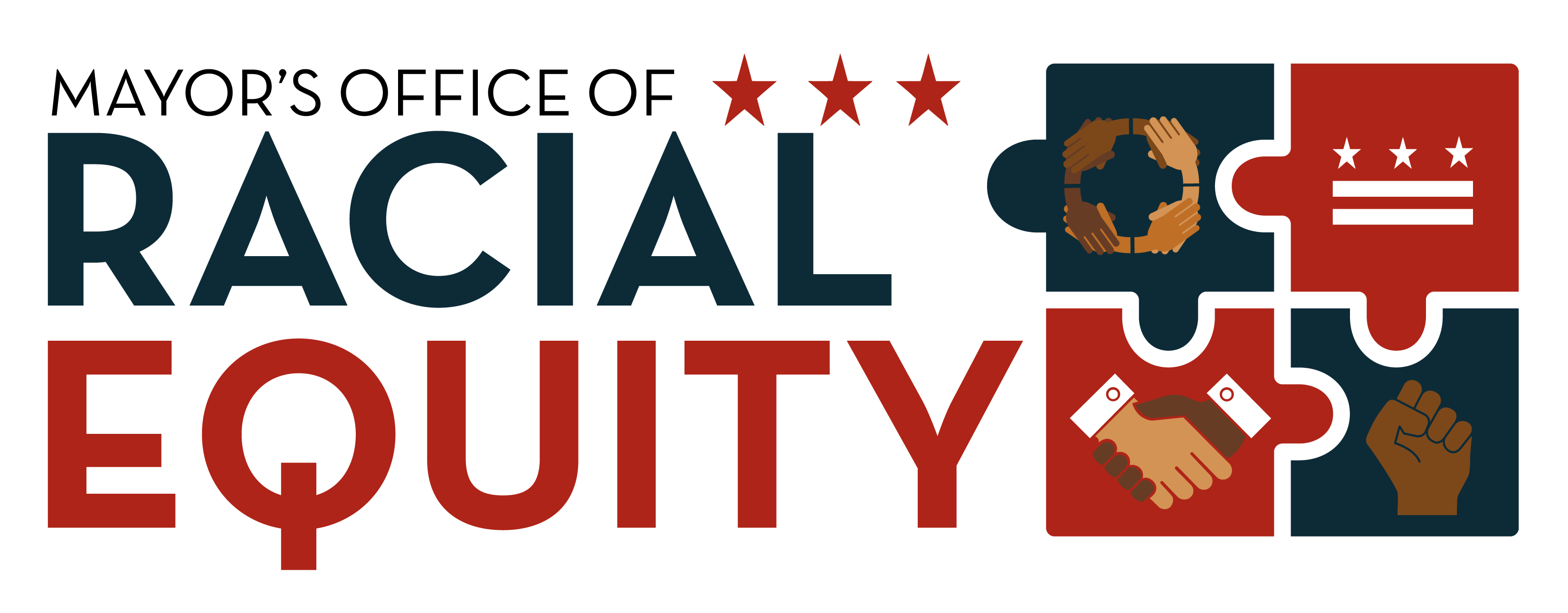
Mayor’s Office of Racial Equity Budget Summary
The Mayor’s Office of Racial Equity (ORE) collaborates with the Office of Budget and Performance Management to advise on the District’s budget formulation. Within the context of the budget process, ORE’s goals are to help standardize the use of a racial equity lens across the District Government’s budget discussions and to promote and track investments with the greatest potential to advance racial equity. Each year the ORE develops a racial equity budget summary. The summary involves a review of agencies’ budgets to consider unintentional disparate impacts on communities based on race, specifically Black, Indigenous, and People of Color (BIPOC) communities and identifies programs and services that have the greatest capacity to move the needle on closing racial equity gaps.
Please see the ORE budget process methodology and summaries below.
- ORE Budget Process Methodology
- Fiscal Year 2026 Budget Summary
- Fiscal Year 2025 Budget Summary
- Fiscal Year 2024 Budget Summary
- Fiscal Year 2023 Budget Summary
The Mayor’s Office of Racial Equity Fiscal Year 2023 Budget Process Summary details investments that support advancing racial equity in the District. The summary involved a review of agencies’ budgets to consider unintentional disparate impacts on communities based on race, specifically Black, Indigenous, and People of Color (BIPOC) communities and identify programs and services that have the greatest capacity to move the needle on closing racial equity gaps.
Data Dashboard
The Racial Equity Dashboard is a dynamic, multipage online platform that provides timely and accessible data on key racial equity indicators across seven dimensions of life in the District. It enables users to view data disaggregated by race and ethnicity, offering insights into trends and disparities. The dashboard serves as a valuable tool for understanding inequities, identifying areas for improvement, supporting advocacy efforts, informing policy decisions, and tracking progress toward achieving racial equity goals in the District.
Race & Ethnicity Data Guidebook
The Race and Ethnicity Data Guidebook provides agency staff with resources and recommendations for equitable collection, use and sharing of race and ethnicity data to advance racial equity. It offers historical context, guiding questions, and practical examples to help agencies assess their current race and ethnicity data practices and identify opportunities for strengthening them. By fostering discussion about racial equity gaps and when to collect individual-level race and ethnicity information, the guidebook supports agencies in ensuring their data practices are aligned with Districtwide and agency-level racial equity goals.
REBT
The Racial Equity Budget Tool (REBT) is both a product and a process, designed as a set of questions to guide District agencies towards assessing how their budgets benefit and/or negatively impact communities based on race, specifically Black, Indigenous, and People of Color (BIPOC) communities. The goal of the tool is to identify programs and services that have the greatest capacity to move the needle on closing racial equity gaps. The tool requires purposeful consideration of race and ethnicity, focuses on data, and encourages community input and involvement. It is recommended that agencies use the tool during the planning phase of the budget formulation process.
REIA
The Racial Equity Impact Assessment (REIA) tool will guide agencies in addressing racial equity as they develop, implement, and evaluate policies, practices, and programs. Using racial equity tools like this one is not the end goal but a step towards integrating a racial equity lens across District work. The questions included in the tool are meant to help readers identify strategies and resources they may need to embed racial equity in their work. It is strongly encouraged to use this guide early in the policy/program development stage and to discuss the questions as a group with all staff who will be responsible for developing and implementing the policy/program. While each decision analyzed using a racial equity impact tool may result in seemingly small changes, their cumulative impact over time can result in significant changes.
GARE Communications Guide
This guide was developed by the team at the Government Alliance on Race and Equity (GARE), in partnership with GARE jurisdictions all over the country, the Racial Equity Here cohort cities (Albuquerque, Austin, Grand Rapids, Louisville and Philadelphia), staff at the Center for Social Inclusion, (which united with Race Forward in 2018) Living Cities, the Haas Institute for a Fair and Inclusive Society at the University of California, Berkeley and Provoc, a communications firm. This guide is meant to serve as a toolkit for informal and formal communications about your jurisdiction's work toward racial equity.
Meaningful Community Engagement Resource Guide
The Meaningful Community Engagement Resource Guide was designed to support the delivery of meaningful community engagement, which is a key step towards embedding a racial equity lens in government, by centering the voices of communities of color who are directly impacted in the design, delivery, and implementation of policies, programs, budgets, and initiatives. The guide was developed with input and feedback from Washington, DC community-based organizations (CBOs) led by Black, Indigenous, and other people of color (BIPOC) residents, and aims to encourage meaningful community engagement practices that actively and intentionally inform and involve District residents and communities in the policy and program decisions which most impact their lives.
Virtual Resource Library for District Government Employees
The Mayor’s Office of Racial Equity (ORE) curates a virtual resource library for District Government that houses a collection of racial equity tools, resources, and guidance documents. The virtual resource library serves as a central repository for District government agencies and employees to access materials and guidance that are produced or recommended by ORE to advance the four goals of the Districtwide Racial Equity Action Plan (REAP). For employees: access the virtual resource library with your DC government credentials using this link.
